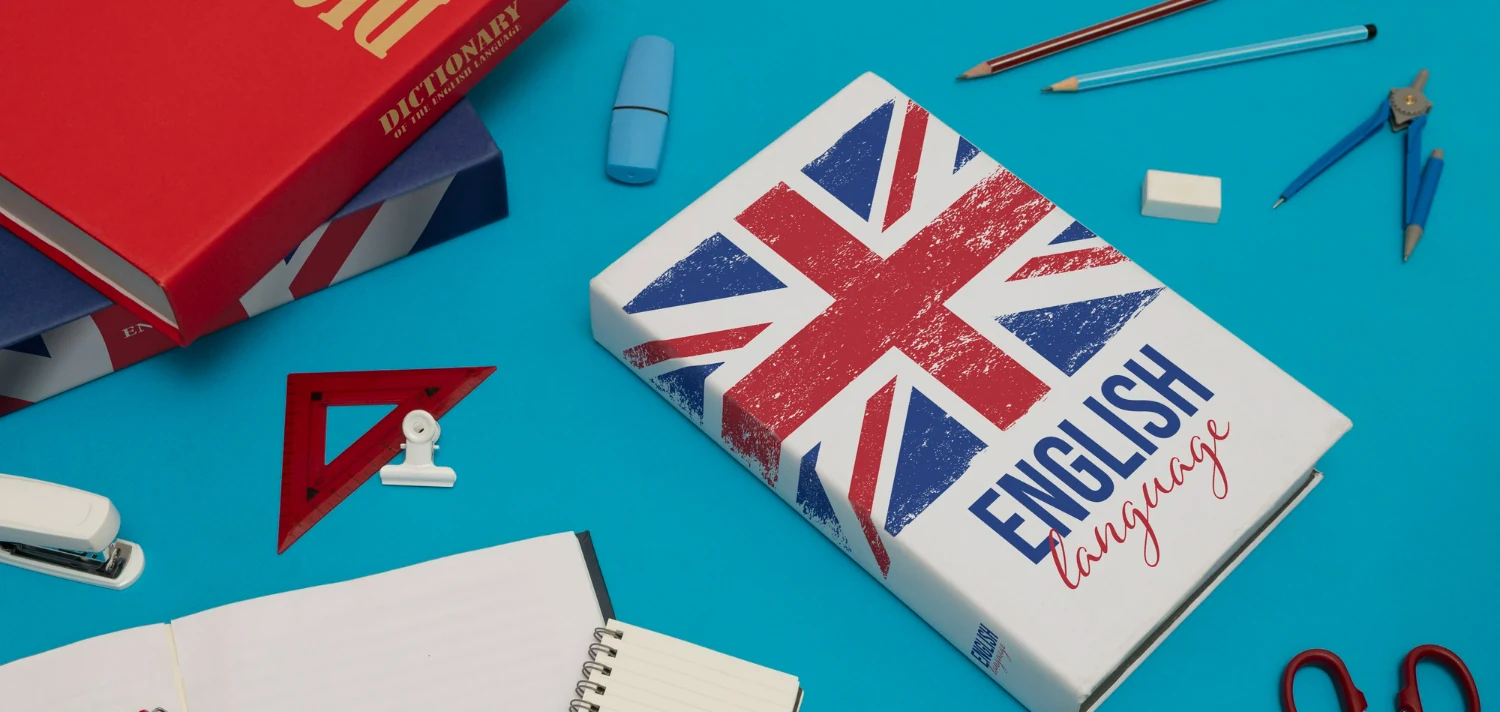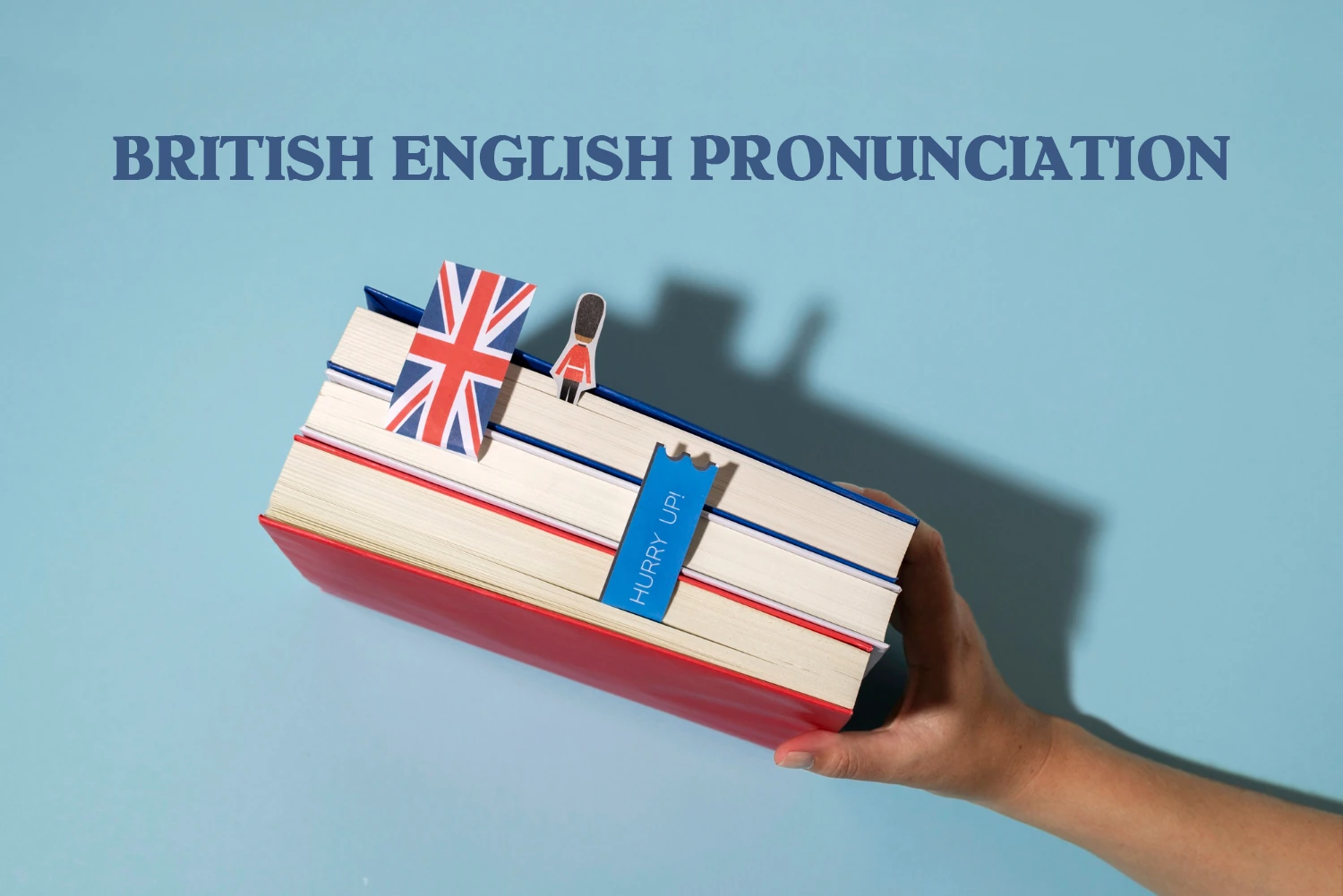Are you ready to sound like a true Brit? Whether you’re dreaming of chatting with locals in London or impressing friends with your spot-on accent, learning to practice British English pronunciation can be a fun adventure. In this guide, we’ll dive into how to practice British English pronunciation like a pro. We’ll keep things simple, use easy words, and share tips that make learning exciting. No more boring lessons – think of this as your secret map to speaking like the Queen (or at least like someone from a cool British TV show)!
By the end, you’ll have tools to practice British English pronunciation every day. We’ll cover sounds, tricks, and even some laughs along the way. Let’s get started!
Why Bother with British English Pronunciation?
First off, why focus on British English? Well, it’s one of the most popular versions of English worldwide. From Harry Potter movies to BBC news, British accents charm people everywhere. But pronunciation isn’t just about sounding fancy – it’s key for clear communication.
Imagine ordering “water” in a British café. If you say it like an American (“wah-ter”), they might hear “what-er.” But with British flair, it’s “waw-tah” – smooth and clear. Mastering this helps in jobs, travel, or even online chats.
Plus, it’s fun! Did you know British English has over 20 vowel sounds? That’s more than many languages. As you practice British English pronunciation, you’ll feel like a detective uncovering hidden sounds. Competitors might list dry facts, but we’ll add games and stories to keep you hooked.
British: “water” is “waw-tah“
American: water is “wah-ter”
The Building Blocks: Understanding British Sounds
To practice British English pronunciation like a pro, start with basics. English has vowels (like a, e, i, o, u) and consonants (the rest). But British versions twist them in unique ways.
Vowels: The Heart of the Accent
Vowels are sneaky in British English. They can be short, long, or even glide into each other (diphthongs).
- Short Vowels: Think “cat” – it’s “kæt,” sharp and quick. Practice by saying: “The cat sat on the mat.” Feel the short ‘a’?
- Long Vowels: In “car,” it’s “kaa” with a stretched ‘a’. No ‘r’ sound unless followed by a vowel. Try: “Park the car in Harvard Yard.” (Fun fact: Brits say “pahk the kaa.”)
- Diphthongs: These are vowel combos, like in “house” (“haʊs”). It starts with ‘a’ and slides to ‘u’.
Practice: “How now brown cow?” Say it slowly, then speed up.
A pro tip: Record yourself on your phone. Play it back and compare it to British YouTube clips. This daily habit boosts your practice of British English pronunciation skills fast.
Consonants: Crisp and Clear
Consonants in British English are often lighter than in American English.
- The ‘R’ Sound: Brits don’t always pronounce ‘r’ at word ends. “Car” is “kaa,” not “kar.” But if the next word starts with a vowel, link them: “Car is” becomes “kaa-riz.”
- The ‘T’ Sound: In words like “butter,” it’s a soft flap, almost like “budda.” Practice: “Better late than never.”
- The ‘Th’ Sound: “Think” is “θɪŋk” (tongue between teeth). Common mistake: Saying “fink” instead. Try tongue twisters: “Thirty-three thieves thought.”
To make it interesting, turn practice into a game. Pick a British song, like from The Beatles, and sing along. Pause and mimic each word. It’s way more engaging than rote drills!
A Detailed Comparison: American English vs. British English
Now, let’s zoom in on what sets British English apart from American English. This isn’t just about sounds – it’s a full showdown! Understanding these differences will supercharge your ability to practice British English pronunciation like a pro. We’ll break it down into pronunciation, spelling, vocabulary, and grammar. Think of it as a friendly rivalry between two cousins of the same language family. While Americans might say “tomato” one way, Brits say it another – and both are right in their world!
Pronunciation Differences
This is the core for our guide. American English is “rhotic,” meaning speakers pronounce the ‘r’ sound everywhere, like in “car” (kar). British English (especially Received Pronunciation, or RP) is “non-rhotic,” so ‘r’ drops at the end of words: “car” becomes “kaa.” But watch out – in linking, it pops back if the next word starts with a vowel, like “car engine” (kaa-rengine).
Vowels shift too. The ‘a’ in “dance” is short in American (“dæns”) but long in British (“daahns”). ‘O’ sounds differ: American “hot” is “haht,” while British is “hot” with a rounded back sound. The ‘t’ in the middle of words like “water” is a hard ‘t’ in British (“waw-tah”) but often a ‘d’ flap in American (“wah-ter”).
Stress patterns vary. In words like “garage,” Americans stress the second syllable (“ga-RAHJ”), Brits the first (“GA-rahj”).
Fun story: A tourist once asked for the “elevator” in London and got blank stares – it’s “lift” there, pronounced “lift” with a crisp ‘i’. To practice, listen to American shows like Friends and British ones like Sherlock side by side. Spot the differences – it’s like a pronunciation puzzle!
Spelling Variations
Spelling is where history shows up. British English keeps more French influences, like “colour” vs. American “color,” or “centre” vs. “center.” Words ending in “-ise” in British (realise) become “-ize” in American (realize). Double letters pop up: British “travelled” vs. American “traveled.”
Why? Blame Noah Webster, who simplified American spelling in the 1800s for easier learning. As a beginner, this matters for reading – if you’re practicing British pronunciation, grab UK books to match sounds with spellings. Try rewriting sentences: “The traveller realised the colour of the centre was grey.” Now Americanize it!
| American | British |
| Color | Colour |
| Honor | Honour |
| Realize | Realise |
| Defense | Defence |
| Center | Centre |
| Traveler | Traveller |
| Check (as in bill) | Cheque |
| Gray | Grey |
| Aluminum | Aluminium |
| Plow | Plough |
Vocabulary Contrasts
Words for everyday things differ wildly. American “truck” is British “lorry,” “apartment” is “flat,” “cookie” is “biscuit,” and “gasoline” is “petrol.”
Food terms: American “eggplant” vs. British “aubergine,” “zucchini” vs. “courgette.”
In slang, Americans say “awesome,” Brits “brilliant.”
Directions: American “sidewalk” is British “pavement,” “highway” is “motorway.”
Picture this: An American in the UK asking for “pants” (meaning trousers) might get underwear instead – hilarious mix-up! To practice British English pronunciation, learn these words and say them aloud: “I filled the lorry with petrol at the motorway.”
| American | British | Meaning |
| Apartment | Flat | A set of rooms for living in |
| Elevator | Lift | A machine that carries people between floors |
| Truck | Lorry | A large vehicle for transporting goods |
| Gasoline | Petrol | Fuel for cars |
| Cookie | Biscuit | A small baked treat |
| Flashlight | Torch | A portable light |
| Trash | Rubbish | Waste material |
| Vacation | Holiday | Time off from work |
| Sweater | Jumper | A knitted garment for the upper body |
| Faucet | Tap | A device for controlling water flow |
Grammar Nuances
Grammar tweaks are subtle but key. Brits use “have got” more: “I’ve got a car” vs. American “I have a car.” Collective nouns like “team” take plural verbs in British (“The team are winning”) but singular in American (“The team is winning”).
Prepositions shift: American “on the weekend” vs. British “at the weekend.”
Dates: Americans say “September 1, 2025,” Brits “1 September 2025.” These affect rhythm in speech, so when you practice British English pronunciation, weave in full sentences to feel the flow.
Overall, neither is “better” – it’s about context. Brits might sound posh, Americans casual. By comparing, you’ll avoid blending accents and sound more authentic. Competitors skim this, but we’ve made it detailed with stories and examples for extra engagement!

American vs. British English Idioms and Expressions
Idioms add flavor to language, like spices in food. They’re phrases that don’t mean what the words say literally. American and British English have unique ones, or twists on the same idea. This ties into pronunciation because idioms often highlight accent differences – think how “r” sounds or vowels stretch. We’ll compare pairs, give meanings, and share three example sentences each. We’ve picked fun, common ones to keep it lively. Practice saying them aloud to nail your British English pronunciation!
American: “Break a leg” / British: “Break a leg” (same, but let’s compare with “Chin up”)
Actually, some overlap, but here’s a true pair:
| AMERICAN | BRITISH |
| 1. American Idiom: “Knock on wood” | British Equivalent: “Touch wood” |
| Meaning: Said to avoid bad luck after mentioning something good. (From touching wood for protection.) | Meaning: Same as American, just a vocab tweak. |
Examples Sentences:
|
Examples Sentences:
|
| AMERICAN | BRITISH |
| 2. American Idiom: “Hit the books” | British Equivalent: “Hit the books” (often same, but “Revise” is common; alternative: “Burn the midnight oil“) |
| Meaning: To study hard. | Meaning: To work or study late into the night. |
Examples Sentences:
|
Examples Sentences:
|
| AMERICAN | BRITISH |
| 3. American Idiom: “Spill the beans” | British Equivalent: “Let the cat out of the bag” (often shared, but British also uses “Spill the beans“; unique: “Blow the gaff“) |
| Meaning: To reveal a secret. | Meaning: To reveal a secret (older slang). |
Examples Sentences:
|
Examples Sentences:
|
| AMERICAN | BRITISH |
| 4. American Idiom: “Piece of cake” | British Equivalent: “Easy as pie” or “Piece of cake” (shared); unique: “Bob’s your uncle“ |
| Meaning: Something very easy. | Meaning: And there you have it – something simple is done. |
Examples Sentences:
|
Examples Sentences:
|
| AMERICAN | BRITISH |
| 5. American Idiom: “Rain check” | British Equivalent: “Take a rain check” (adopted); unique: “Put it on the back burner“ |
| Meaning: Postpone plans for later. | Meaning: Delay something for now. |
Examples Sentences:
|
Examples Sentences:
|
These idioms show cultural twists – Americans often draw from sports or food, Brits from history or slang. To practice British English pronunciation like a pro, say the British ones with non-rhotic ‘r’s and long vowels. Turn it into a game: Role-play a conversation using one from each side. It’s a blast and builds confidence!

Common Pitfalls and How to Dodge Them
Even pros slip up at first. Here’s how to avoid traps while you practice British English pronunciation.
Mixing American and British Sounds
Many beginners blend accents. For example, “dance” in British is “daahns,” not “dæns.” Fix it by listening to podcasts like “The Archers” – it’s like eavesdropping on real Brits.
Story time: I once knew a learner who said “tomato” as “to-may-to” in a London pub. Everyone chuckled, but he learned quickly! Use apps like Forvo to hear natives say words.
Stress and Rhythm Issues
British English has a bouncy rhythm. Stress wrong syllables, and you sound off. In “photograph,” stress “FO-to-graf.” Practice with poems: Read Dr. Seuss with a British twist.
Another pitfall: Speaking too flat. Brits use intonation – rising and falling tones. For questions, pitch up at the end: “Isn’t it?”
To spice it up, role-play. Pretend you’re a British spy ordering tea. “I’d like some tea, please” – emphasize “tea” for drama.
Silent Letters and Tricky Words
Words like “knight” (silent ‘k’) or “queue” (“kyoo”) trip people. List them: Knight, debt, island. Practice by making flashcards with pictures – a knight on a horse for “knight.”
Fun challenge: Create silly sentences. “The knight’s debt was from buying an island queue.” Say it 10 times fast!

Daily Exercises to Practice British English Pronunciation Like a Pro
Now, the action part! These exercises are simple, beginner-friendly, and more exciting than competitors’ lists.
Mirror Magic
Stand in front of a mirror. Watch your mouth shape sounds. For “oo” in “food,” pucker lips. Do it for 5 minutes daily.
Add fun: Make faces while saying words.
Shadowing Technique
Play a British audio clip (like from BBC Learning English). Repeat right after, copying tone and speed. Start slow, build up. It’s like dancing with words!
Tongue Twisters Tournament
Compete with yourself with the classics:
“Red lorry, yellow lorry.”
“She sells seashells by the seashore.”
Time yourself. Beat your record weekly. Share scores with friends for motivation.
Word Chains
Link words: Say “tea” then “time” (linking ‘a’ to ‘t’). Build sentences: “Tea time is terrific.” This smooths your flow.
Pro hack: Use Duolingo or Elsa Speak apps. They give instant feedback, like a personal coach.
Real-Life Practice
Chat with Brits online via language exchange apps like Tandem. Or watch shows like “The Crown” with subtitles off. Pause and repeat lines.
Story: A beginner I know practiced by narrating her day in a British accent. “I’m off to the shops for biscuits.” It stuck fast!
Aim for 20-30 minutes daily. Consistency is key to practicing British English pronunciation like a pro.
Tools and Resources for Extra Fun
Don’t go solo – grab these helpers.
Apps: Pronounce Live, Speechling. They gamify learning with points and levels.
YouTube Channels: English with Lucy, BBC Learning English. Watch fun videos on accents.
Books: “Get Rid of Your Accent” by Linda James & Olga Smith. Simple exercises with audio.
Podcasts: “6 Minute English” – short, themed episodes perfect for beginners.
Online Communities: Reddit’s r/learnbritishenglish. Share progress, get tips.
Unlike dull lists from others, try “accent challenges” on TikTok. Film yourself and join trends!
Overcoming Challenges: Stay Motivated
Hitting walls? It’s normal. If frustrated, take breaks. Celebrate small wins, like nailing a tough sound.
Remember, even natives vary. Focus on Received Pronunciation (RP) for a “pro” feel, but explore dialects for fun.
Motivation tip: Set goals. “This week, master vowels.” Reward with British treats like scones.
Wrapping Up: Your Path to Pro Pronunciation
You’ve got the tools to practice British English pronunciation like a pro. From vowels to exercises, plus comparisons and idioms, it’s all about fun and daily steps. Start today – record a before-and-after video in a month. You’ll amaze yourself!
Keep exploring, stay curious, and soon you’ll chat like a Brit effortlessly. Questions? Dive deeper with the resources above. Cheerio!
If you are still struggling with the sounds of British English? Our beginner-friendly courses at EnglishFact break down the key pronunciation rules and sounds, giving you the confidence and fluency to be understood clearly, every time.
Talk to us on WhatsApp or join a FREE Trial Class today!





One Response
Thanks for sharing this insightful article.